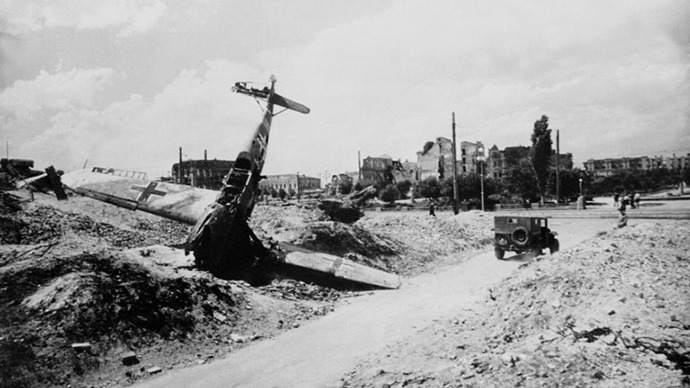What World War II can teach us about today’s divided Europe

World War II was one of the most tragic pages in Russian history: We endured suffering unparalleled in modern history. The four-year struggle against a foreign invasion ended in victory over Nazi Germany, and still holds important lessons for us today.
One of the key lessons is that the fight against war must be waged before the outbreak of war, not after. Collective efforts by all peace-loving nations, by all who cherish freedom, are an absolute necessity. World War II was not inevitable. It could have been prevented but for political errors and strategic blunders made by elites blinded by ideological considerations that distorted the geopolitical calculus. It was Germany’s direct aggression both in the West and East that brought common sense back into strategic thinking.
The most important lesson of World War II lies in the fact that states with different ideologies could unite in the face of a common threat. “Today, when the world faces the rise of extremism and terrorism, such an experience of unity is especially valuable," President Vladimir Putin said.
The whole experience of the interwar period – from the Treaty of Versailles to the outbreak of WWII – shows that an effective system of collective security in Europe ought to be universal, with all countries of the continent – including Russia – taking part. There can be no security if it is based on somebody else’s insecurity, or done at somebody else’s expense.
Unfortunately, no conclusions were drawn from how Europe slid into the First World War, or the diplomatic preparations for it, including methods of secret diplomacy; the League of Nations and the Kellogg-Briand Pact were failures.
Finally, the history and results of World War II are still subject to acute ideological and scientific dispute. This dispute often contains distortions, bias and sometimes lies. And for obvious reasons: The Cold War that followed simply continued the tradition of confrontational politics in the Euro-Atlantic and worldwide.
The ideal of a Europe whole and free brought into being a set of principles enshrined in the Helsinki Final Act at the time of detente. Unfortunately, the OSCE has proved unable to evolve into a full-fledged regional security organization. So, Europe remains a patchwork of areas of various levels of security. This, no doubt, negatively impacts its ability to be an effective global player in security matters.
The answer to this challenge is clear. We have got to go beyond all the existing structures on the continent while leaving their integrity intact and drawing, finally, a line under the Cold War era, its instincts, prejudices and dangerous illusions of uniform existence.
If it is true that it took two world wars to make capitalism and democracy compatible, then it is hard to imagine how this historic achievement could be preserved in a divided and fragmented Europe. This is precisely the aim of a possible European/Euro-Atlantic security treaty: To help ensure a common space of indivisible security as a precondition for a politically united Europe.
The statements, views and opinions expressed in this column are solely those of the author and do not necessarily represent those of RT.
The statements, views and opinions expressed in this column are solely those of the author and do not necessarily represent those of RT.













